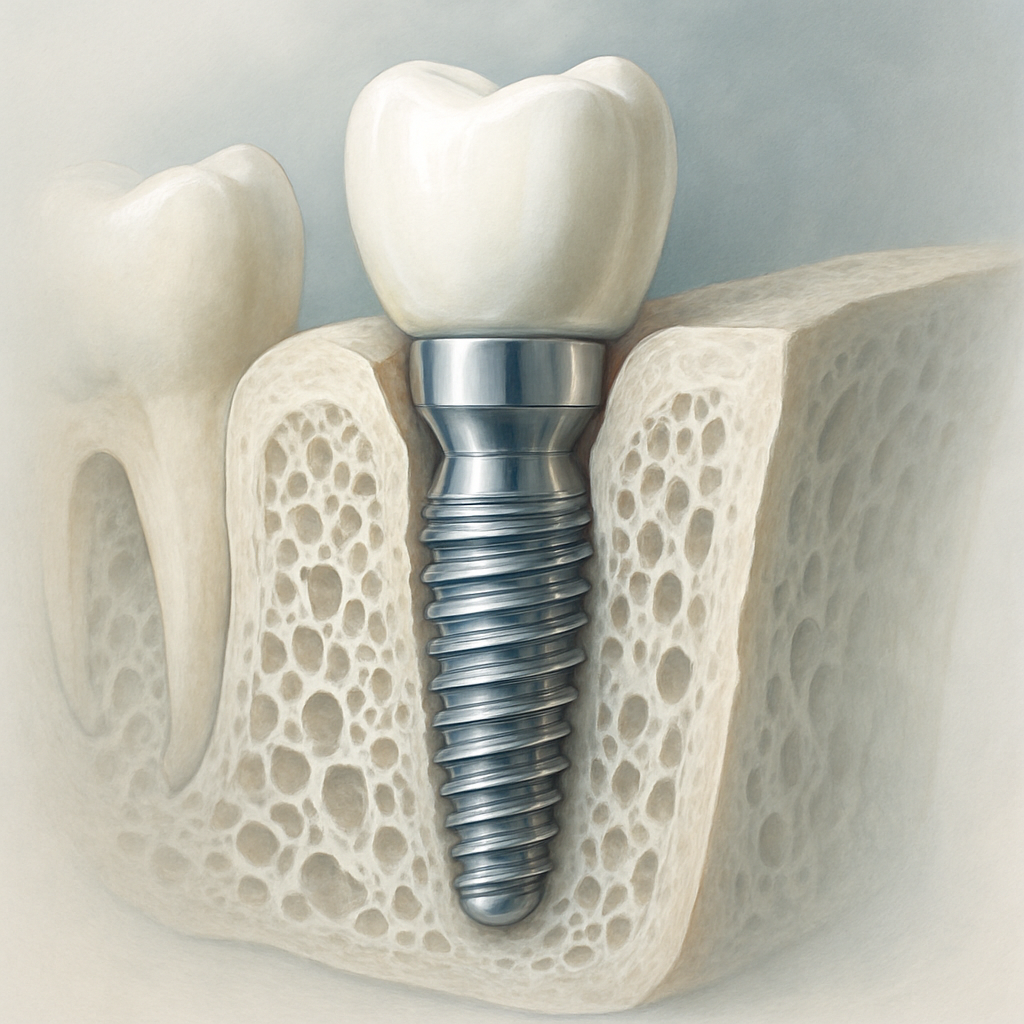It's common knowledge that caring for your teeth is an important part of protecting your oral health and preventing dental disease, including tooth decay. However, many people aren't aware of the significance of maintaining strong and healthy gums. According to the Center for Disease Control (CDC), nearly half of all adults over the age of 30 have periodontal disease.
Poor gum health isn't only bad for one's oral health, often leading to serious dental issues later, such as tooth loss; it can also have a direct effect on a person's overall health. Oral health problems have been linked to many other health concerns, including diabetes, heart disease and stroke.
Prioritizing the health of your gums is essential to a healthy life. Here's what you should know about diagnosing, treating, and preventing periodontal disease.
Periodontal Disease: An Overview
Periodontal disease, also known as gum disease, occurs when the gums become infected and inflamed. It starts off as gingivitis, in which the gums become red and swollen, and often bleed. It can quickly progress into periodontitis, which results in the gums pulling away from the tooth, bone loss developing, and teeth eventually becoming loose and possibly falling out.
The biggest contributor to periodontal disease is poor oral hygiene habits. When a person doesn't brush their teeth thoroughly twice a day, floss regularly, and/or visit the dentist for routine exams and professional cleanings, they put their oral health in jeopardy. Without consistent oral health habits, your mouth becomes overrun with bacteria and food debris that can lead to plaque and tartar build-up.
Plaque is a sticky substance that forms a film over the surface of your teeth when they aren't properly cleaned. It is very difficult to see with an untrained eye and can't be removed with at-home brushing alone. Unfortunately, when plaque is left untreated, it can harden into tartar. Tartar build-up can cause gum inflammation and even stain the surface of your teeth. Along with aiding in bad breath, bleeding gums, and discolored teeth, tartar can lead to gum disease.
How Is Periodontal Disease Diagnosed?
Periodontal disease is tricky in that it is typically not obvious or recognizable to the naked eye. Because of this, it's necessary for a dentist to diagnose gum disease, which can be done with a simple routine examination. Along with examining your gums, the dentist or dental hygienist will measure the "pockets" around your teeth with a tiny ruler to see how far your gums have pulled away from each tooth.
While most people who have gum disease don't even realize it, there are often tell-tale signs that one's gums aren't in good condition. These include:
- Inflamed or bleeding gums
- Bad breath
- Receding gum line
- Tooth sensitivity
- Discomfort chewing
- Loose teeth
It's important to note that gum disease will not resolve on its own. If you are experiencing one or more of these symptoms, it's best to seek professional dental treatment sooner rather than later. Doing so will not only restore the health of your smile but will prevent other illnesses from forming in the future.
What Illnesses Can Periodontal Disease Lead To?
Gum disease can be inconvenient and uncomfortable, but unfortunately, the issues don't end there. It can also lead to serious oral complications, including tooth and bone loss. As if this wasn't bad enough, gum disease can impact other parts of your body. For instance, untreated gum disease can force your immune system to go into overdrive and fight things that it otherwise wouldn't have to. In worse cases, it can lead to autoimmune disorders where your body tries to fight off healthy cells as well.
Similarly, the bacteria that thrive in inflamed gums can travel to other parts of your body, including your heart, through the bloodstream. This can lead to cardiovascular problems, including coronary heart disease, heart attack, or stroke.
How Is Periodontal Disease Treated?
If the dentist does diagnose you with periodontal disease, they will create a personalized treatment plan to help restore the health of your gums. If your condition is not severe, the dentist will likely recommend that you come in for a professional deep cleaning called scaling and root planing, which will entail a dental hygienist removing the plaque and tartar from the surface of your teeth as well as below the gumline.
Of course, practicing excellent oral hygiene at home will also be necessary to allow your gums to heal and strengthen. If your gum disease is advanced, the dentist may refer you to a periodontist, a dentist who specializes in gum health, to seek a more aggressive approach.
Tips to Keep Your Gums Healthy
The best solution for keeping your gums healthy is to take practical and proactive steps to prevent periodontal disease from forming in the first place. Fortunately, caring for your gums is easier than you might think. Here are some tips to keep your gums as healthy as possible:
- Brush your teeth for two minutes twice a day
- Floss and use mouthwash daily
- Visit the dentist for routine exams and professional cleanings
- Get more vitamin C, which can help reduce inflammation and fight infections
- Drink lots of water, especially when eating foods that can harm your teeth and gums, such as acidic or sugary foods
- Limit your consumption of sweets, especially those that cling to the surface of your teeth and are hard to remove
There's no question that neglecting to brush and floss your teeth regularly has a bigger impact than merely causing bad breath. Gum disease is a serious condition that can affect the well-being of your smile and overall long-term health.
If it's been a while since you've had a dental exam or you're showing the early signs of gum disease, the trusted team at Palmetto Dental Arts is here to help you restore your gum health. Contact us today to schedule your dental check-up and cleaning. We look forward to showing you how easy maintaining strong gums can be!





